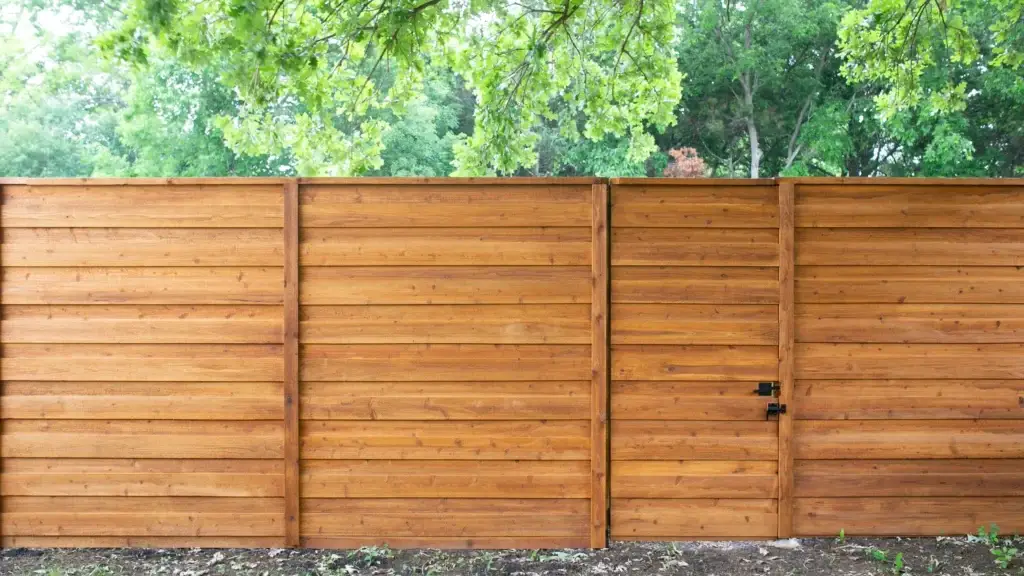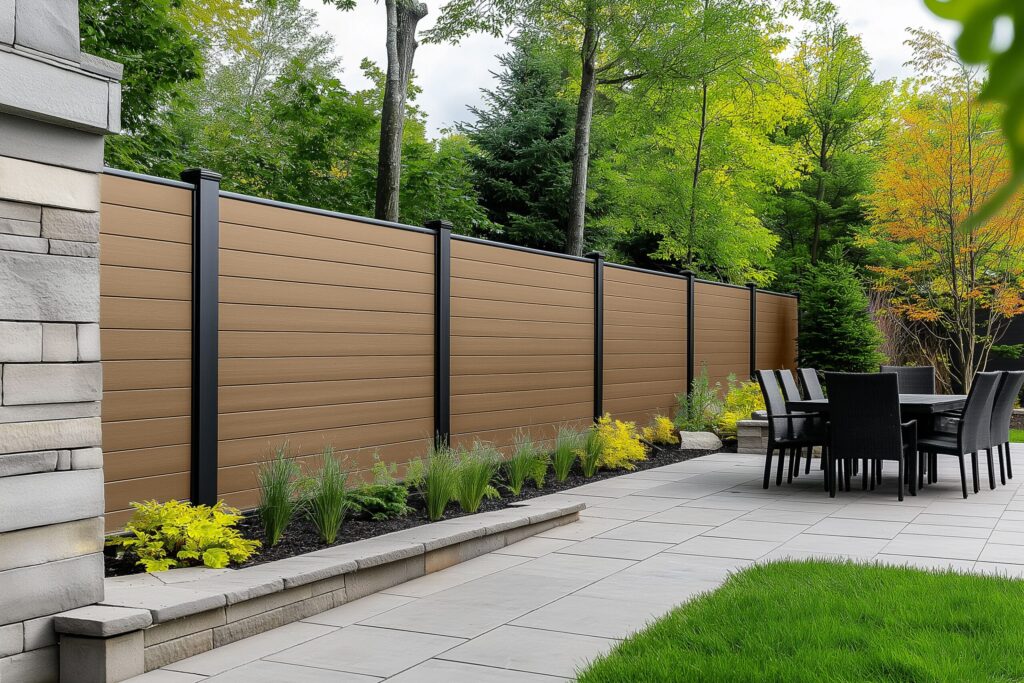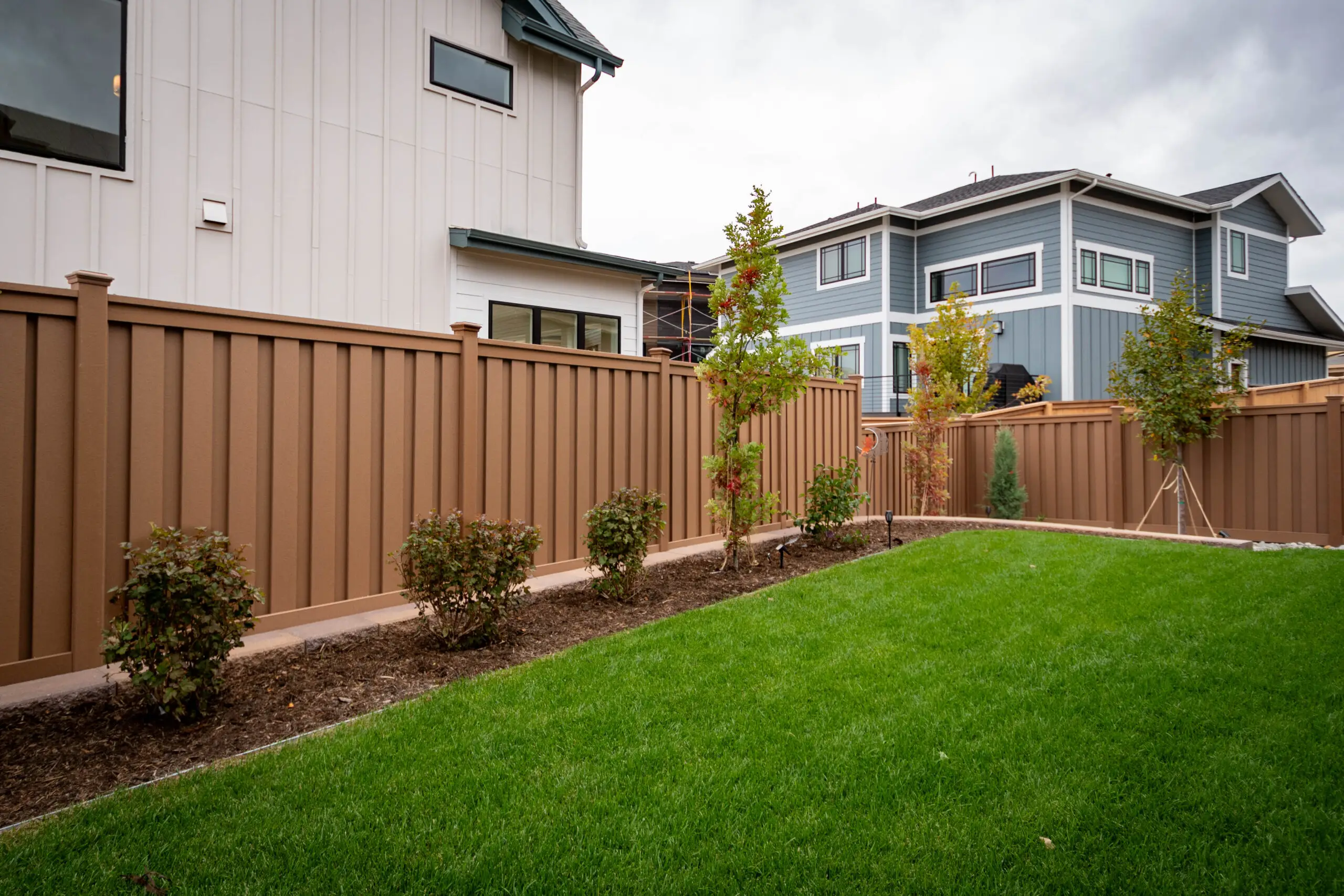When homeowners in London, Ontario start planning a new fence, the two most common choices are wood and composite. Both are popular, both look great, but they come with very different price tags and long-term expectations.
So which one is right for you in 2025? Let’s compare.
What Is a Wood Fence?
Wood fences are the classic choice—affordable, customizable, and widely available. Pressure-treated pine and cedar are the most common options in London.
Pros of Wood Fences:
- Lower upfront cost compared to composite
- Classic, natural look that suits most homes
- Easy to customize with paint, stain, or design features
Cons of Wood Fences:
- Requires staining or sealing every 2–3 years
- Vulnerable to rot, insects, and weather damage
- Lifespan usually 10–15 years before major repairs or replacement

What Is a Composite Fence?
Composite fences are made from recycled wood fibers and plastics. They mimic the look of wood but are built to last much longer with very little upkeep.
Pros of Composite Fences:
- Extremely durable (20–25 year lifespan)
- Low maintenance—no staining, painting, or sealing required
- Resistant to rot, insects, and warping
- Modern, uniform appearance
Cons of Composite Fences:
- Higher upfront cost than wood
- Limited customization (set colors and styles)
- Can fade slightly over time with sun exposure

Cost Comparison (London Ontario 2025)
| Fence Type | Cost per Linear Foot (Installed) | Average Lifespan | Maintenance Level |
|---|---|---|---|
| Wood (Pressure-Treated) | $40 – $55 | 10–15 years | High (stain/seal every 2–3 yrs) |
| Wood (Cedar) | $50 – $70 | 12–18 years | Medium (stain/seal every 2–3 yrs) |
| Composite | $80 – $100+ | 20–25 years | Very Low (no sealing required) |
Which Should You Choose?
Choose Wood If:
- You want the lowest upfront cost
- You like the natural look of real wood grain
- You don’t mind ongoing maintenance
Choose Composite If:
- You want a fence that will last 20+ years with minimal upkeep
- You’re willing to invest more upfront to save money long-term
- You prefer a clean, modern, uniform look
Final Word
In 2025, the decision between wood and composite comes down to budget vs longevity.
- Wood fences are affordable, natural-looking, and flexible—but they need regular care and won’t last as long.
- Composite fences cost more upfront but save you years of maintenance, offering durability and style that stands the test of time.
If you’re planning to stay in your home long-term, composite is usually the better investment. But if you want something affordable and customizable today, wood still delivers.
